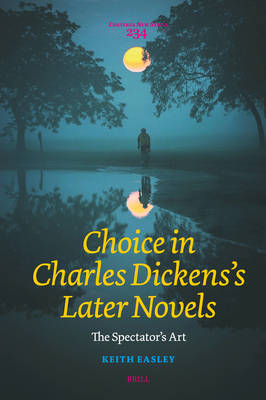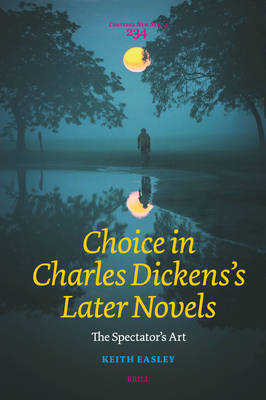
- Afhalen na 1 uur in een winkel met voorraad
- Gratis thuislevering in België vanaf € 30
- Ruim aanbod met 7 miljoen producten
- Afhalen na 1 uur in een winkel met voorraad
- Gratis thuislevering in België vanaf € 30
- Ruim aanbod met 7 miljoen producten
Zoeken
Omschrijving
We read the book, and the book is reading us. In his later novels, Charles Dickens uses the interaction between characters and their audiences within the fiction to dramatise his growing understanding of the pivotal role of spectatorship and choice in a more democratic society. Egotists of all stripes, intent on bending the world to their singular will, would appropriate the power of spectatorship by taking command of the detachment necessary for choice. Dickens's pluralistic art of sameness and difference redefines that detachment, and liberates choice both inside and outside the novels, for the relationship between characters and their audiences within the narratives actually inscribes our own relationship with them in the performance of reading, a reflective doubling of the fiction upon the reader across time with moral consequences for our spectatorship of our own lives.
Specificaties
Betrokkenen
- Auteur(s):
- Uitgeverij:
Inhoud
- Aantal bladzijden:
- 300
- Taal:
- Engels
- Reeks:
- Reeksnummer:
- nr. 234
Eigenschappen
- Productcode (EAN):
- 9789004528499
- Verschijningsdatum:
- 26/06/2023
- Uitvoering:
- Hardcover
- Formaat:
- Genaaid
- Afmetingen:
- 157 mm x 239 mm
- Gewicht:
- 576 g

Alleen bij Standaard Boekhandel
+ 399 punten op je klantenkaart van Standaard Boekhandel
Beoordelingen
We publiceren alleen reviews die voldoen aan de voorwaarden voor reviews. Bekijk onze voorwaarden voor reviews.











